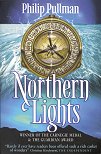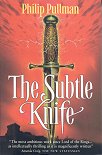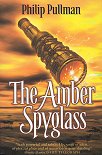Lyra is a young girl living in a world in some respects similar to our own, and in some respects very different. This is an alternate universe where the geography of the world is recognisable, but the history, the physics, and the metaphysics, have crucial differences. The main one is that every person is accompanied by a dæmon, an inseparable animal familiar that shares their soul and life. Lyra has spent a relatively free life as an orphan at Jordan College in Oxford. But events take a sinister turn when she discovers a plot against her Uncle Asriel, and that it may be linked to the disappearing children. When her dear friend, the kitchen boy Roger, disappears, she determines to find him. This leads her on the adventure of her life, to London, then to the far north of Scandanavia, home of the Aurorae and the fierce intelligent bears, and of mortal peril for Lyra.
This is a rich, inventive, scary, thrilling tale. The world-building is excellent, original and fascinating. Lyra isn't a terribly pleasant protagonist, but she feels solidly real, and shows much courage and fortitude as events spiral out of control. (This is the first book of a trilogy, and has only a small amount of closure at the end.)
This series has received a lot of hype. Maybe I've absorbed so much sensawunda over the years that I've lost some of my capacity for wonder, but I don't think this is as great as people make out. Or maybe I've just been exposed to a greater range of SF, so am more aware of other peaks of excellence. Don't misunderstand me: this is very good indeed, and there is certainly nothing "juvenile" about the complexity of the tale and its background. But it's comparable to, and not not head-and-shoulders above, the best of the rest as some of the hype might lead you too expect. However, it's certainly good enough that I'm now off to read the next book right away.


